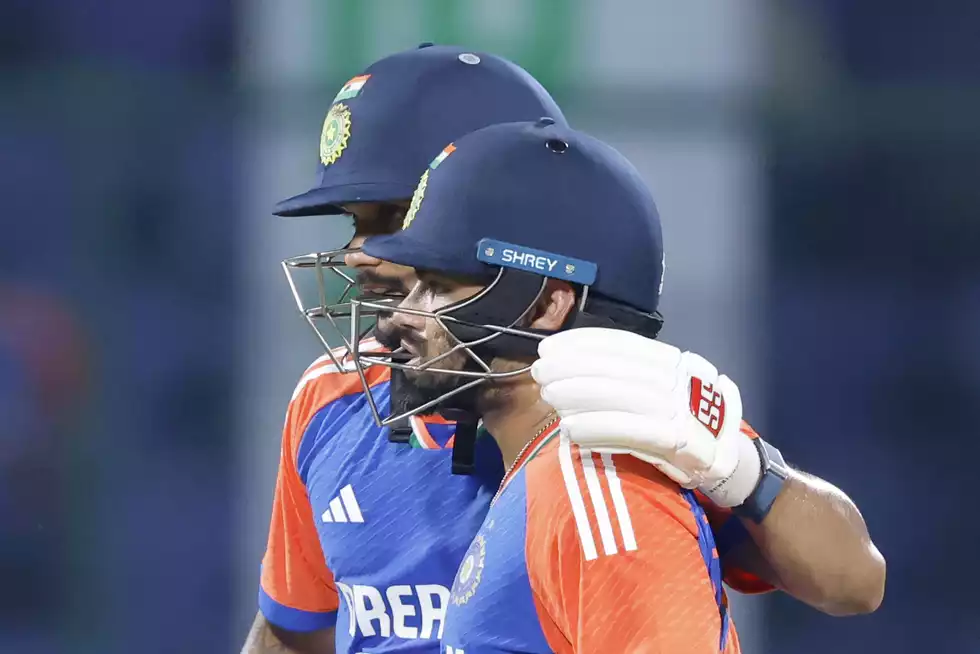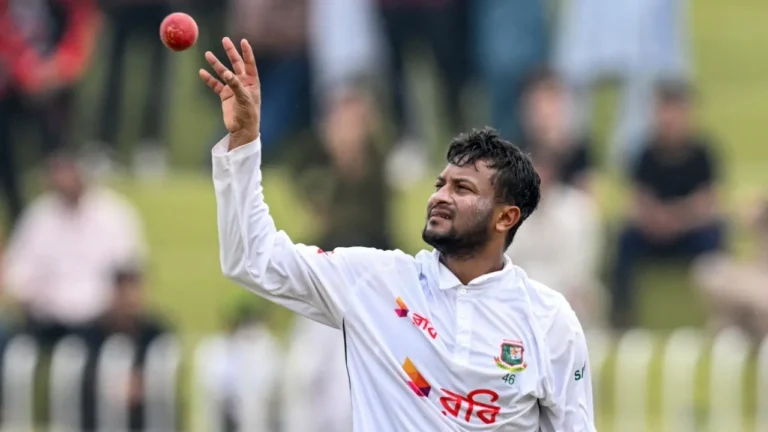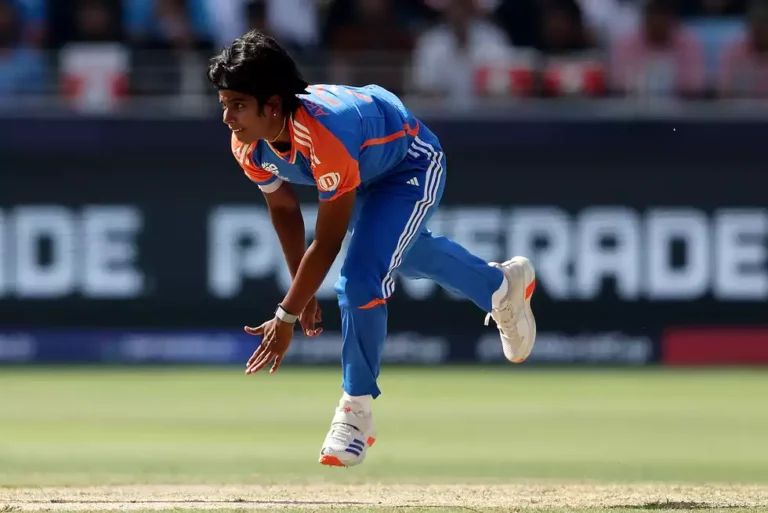Adelaide 2022 feels like a distant memory. While India had spent much of that innings painstakingly recovering from the early loss of an opener, the story in Delhi in 2024 was altogether different.
Yes, the pressure of a semifinal wasn’t there, and they came in with a series lead, but India’s reaction to a batting crisis in batting-friendly conditions spoke volumes about how far they’ve come in the past two years.
Here, during the second T20I against Bangladesh in Delhi, India’s response to losing not one, not two, but three wickets in the PowerPlay was not to go into survival mode.
Ironically, that approach has done anything but help them when it mattered the most.
Instead, at 45/3 after the PowerPlay, India shifted gears, scoring 120/1 in the middle overs (7-15). It was their third-highest ever in that phase of a T20I.
At the core of India’s fine recovery in Delhi was a consistent message from the leadership group ever since that Adelaide defeat exposed just how far behind they had fallen in the T20 batting revolution.
If it was Rohit Sharma and Rahul Dravid urging the youngsters to adopt an aggressive approach back then, it’s Suryakumar Yadav and Gautam Gambhir now.
“The message has been loud and clear. You just go out and express yourself – the same thing that you do in the nets, the same thing that you’ve done for your franchise, what you’ve done for your state,” Suryakumar said after India’s 86-run win.
“When you come here, just the jersey changes, the emotion changes, rest everything remains the same. Just be yourself.”
Nitish Reddy and Rinku Singh, the two batters at the heart of the action during those middle overs, truly embodied the advice of their captain and executed the plan to perfection with an 108-run stand off 49 balls.
And all they needed was a little moment to turn the innings around and it came when Mahmudullah bowled a no-ball and provoked Nitish into his clean bat-swinging routine.
The 21-year-old Andhra and SRH batter smashed 7 sixes, three more than Bangladesh as a team.
And every time he cleared the ropes, Rinku revealed later about how he would meet him mid-pitch, reminding him with a smile, “God’s plan, baby!”
Rinku smashed 3 sixes of his own, taking the hosts’ tally to 15. It was the most sixes hit in a T20I against Bangladesh.
In many ways, India outclassed their opponents not just with their intent to hit big but also through superior skill and muscle.
This transformation didn’t happen overnight; it’s taken time, effort and the sting of a World Cup loss. But with a World Cup win now behind them, their intent is shining through even more clearly.
“I should give credit to the captain and coach,” Nitish said at the post-match presentation.
“They told me to play the aggressive way only, the way I played in the IPL. They gave me the license. I took a bit of time [at] first and that no-ball came and I felt this is my time.”
India’s upswing in the match wasn’t about being a one-trick pony either. Nitish, in fact, was 13 off 13 on a pitch he’d been warned was sticky.
Even after rediscovering his rhythm with a free-hit six, he waited for the right moment to launch his attack, wisely choosing to target offspinner Mehidy Hasan, from whom he plundered 26 runs in a single over.
Speaking to Jio Cinema after the match, Nitish dived a little deeper into his gameplan and his partnership with Rinku: “We didn’t plan too much.
We were three down and in a pressure situation but we are always planning in the dressing room that we need to play fearless cricket.
That’s what helped me I guess. I took my time and once I saw the over where I need to attack, that’s where everything changed.”
When Nitish fell trying to launch one over midwicket, Hardik Pandya came to the crease and tried to clear the very same boundary.
And when Rinku holed out in the deep, Riyan Parag came in and tried to clear the very same fielder.
The focus wasn’t on seeing the innings through; it was squarely on scoring runs.
And it was no surprise India were nine down by the end of their innings, but thanks to their all-out attacking approach, they had 221 runs on the board.
What would especially please India is how the young generation is embracing the aggressive approach.
Let’s face it: Indian cricket is fiercely competitive. With two players ready to take your spot, it’s understandable why many would gravitate toward a more cautious, risk-averse approach.
But what we saw from the young Indian players in this match proves that the aggressive, fearless brand of cricket has taken root, even without Rohit Sharma around to run down the pitch and show them the way.
It was a performance that truly showcased how India’s T20 batting is in capable hands. Safe hands, you say? That was never the plan.
In 2024, that approach simply doesn’t cut it. And India, having learned their lessons from Adelaide 2022, will be glad they’re wiser for it.



